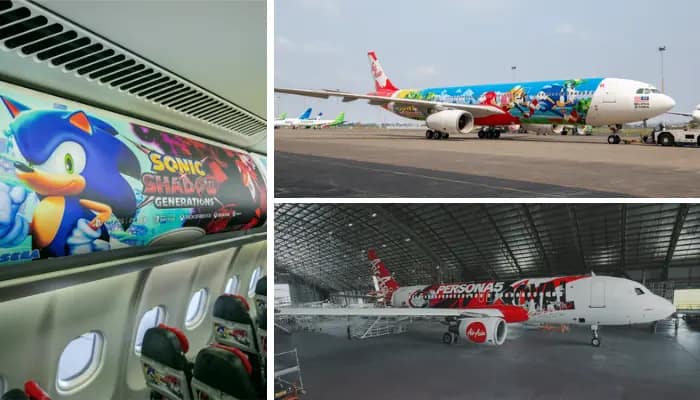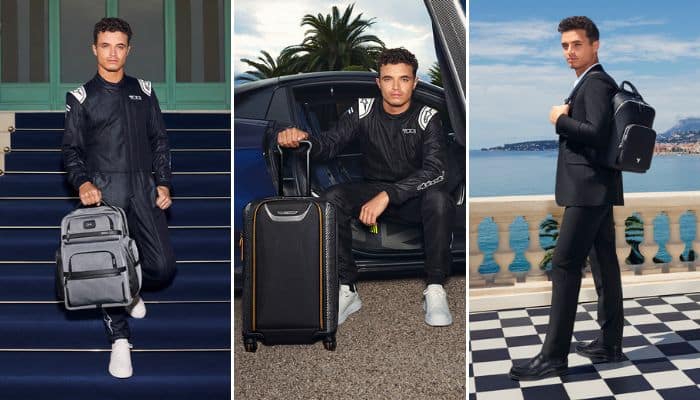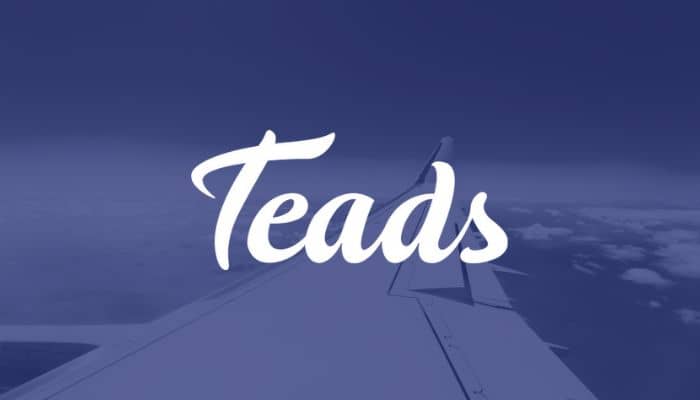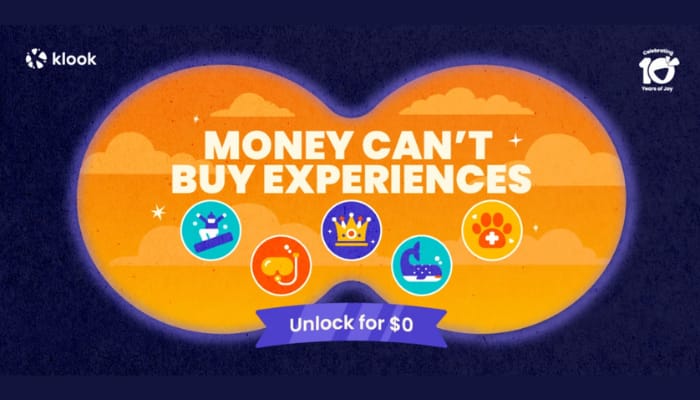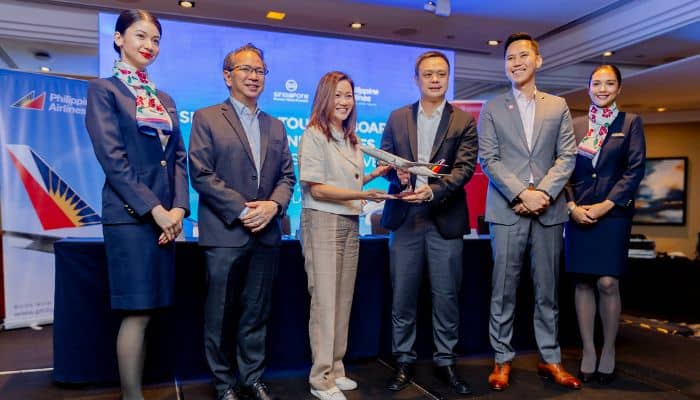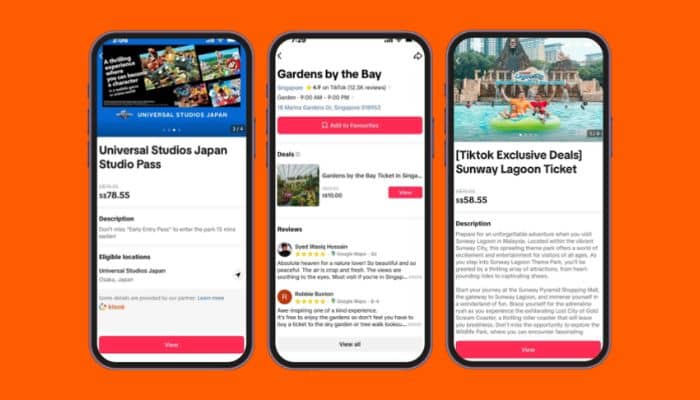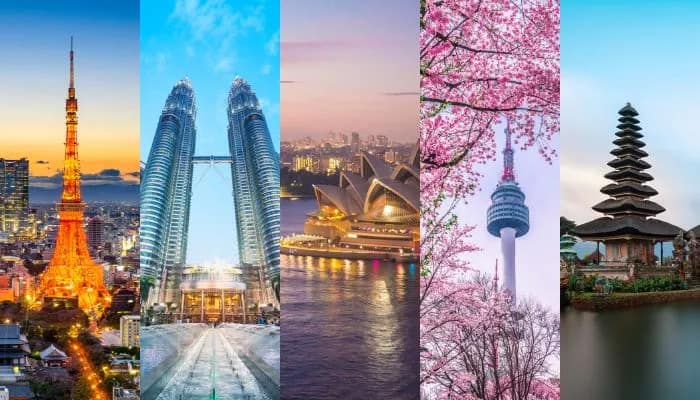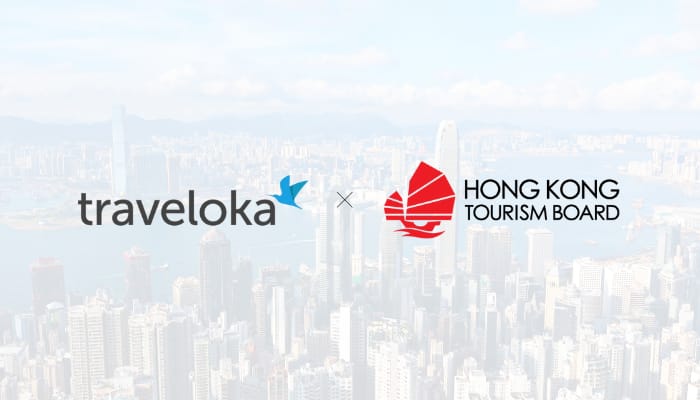Kuala Lumpur, Malaysia – AirAsia has recently joined forces with video game companies SEGA and ATLUS to bring the ‘Sonic the Hedgehog’ and ‘Persona 5’ franchises to life through custom aircraft liveries and immersive in-flight experiences. Said partnership is in conjunction with the larger ‘The Colour Of Connection’ campaign by AirAsia brand co. (Abc.), the brand management arm of Capital A.
The two aircraft will fly routes across AirAsia’s network of over 100 destinations including major cities in Southeast Asia and Asia Pacific like Bangkok, Tokyo, Seoul, Taipei, Shanghai, and Sydney, bringing the thrill of popular gaming culture and lifestyle to many guests and fans around Asean and beyond.
In addition, Santan in-flight catering will offer a special treat inspired by Sonic the Hedgehog – the Sonic’s Golden Ring Cakes. These zesty mango and lemon-flavoured golden ring cakes, reminiscent of Sonic’s iconic golden rings, are available for pre-booking on all AirAsia Malaysia (flight code: AK) and AirAsia X Malaysia (flight code: D7) flights. Priced at RM13, the combo includes a Fizzy Iced Yuzu drink and a free Sonic-themed sticker with each purchase.


Lastly, AirAsia will introduce exclusive Sonic the Hedgehog and Persona 5 merchandise, available for purchase starting in the first quarter of 2025 on all AirAsia Malaysia and AirAsia X flights, as well as on AirAsia MOVE Duty-Free, allowing fans to take home a piece of this collaboration.
“Through the aim of building an immersive experience, guests can fly on these planes emblazoned with the universes from SEGA and Atlus. From the livery design, to little in-flight touches, a Sonic the Hedgehog-themed meal and more, you’ll feel like you stepped into these iconic universes–not forgetting that the collaboration also includes exclusive merchandise,” Rudy Khaw, Chief Executive Officer of AirAsia brand co. (Abc.) said in an exclusive interview with MARKETECH APAC.
Rudy also notes that as part of AirAsia’s ongoing evolution into a well-rounded brand across travel, lifestyle and beyond, these collaborations reflect their focus on offering guests and brand enthusiasts transformative experiences, making the journey itself as exciting as the destination.
“By weaving in elements of these iconic franchises, we’re connecting our guests to their passions and fandoms while reinforcing AirAsia’s role as a leading Asean brand focused on inclusivity, accessibility and cultural relevance,” he added.
Collaborations to connect with audiences
It is worth noting that special liveries for AirAsia have been focused on commercial ones as part of their AirAsia Media offering, which includes partnering with Watsons, Genting Malaysia, and more recently with the Singapore Tourism Board (STB), Gardens by the Bay and Mandai Wildlife Group for its ‘Love, Singapore’ campaign.
However, Rudy notes that this special collaboration with SEGA and ATLUS is meant to forge a deeper relationship of customers to the brand, as it aims to develop itself into a full-grown brand beyond travel and lifestyle.

“While past partnerships like Watsons and Genting Malaysia were rooted in commercial engagement, our partnerships with Persona 5 and Sonic the Hedgehog stand out for their deeper emotional resonance. These franchises have passionate fan bases across the globe, and by incorporating their world-building into the travel experience, AirAsia isn’t just advertising a brand—it’s facilitating cultural connection,” he said.
Rudy added, “This is in line with our role as Asean’s creative incubator, where we focus on amplifying cultural narratives and tapping into the emotional aspects of the customer experience, further positioning AirAsia as a creative trailblazer in the region.”
Experiences beyond traditional platforms
Rudy notes that as the AirAsia brand has evolved to represent a dynamic travel and lifestyle platform that transcends industries—from aviation to digital and creative ventures–so does too their ways of promoting brand experiences for customers.
“While this initiative is driven by Abc., the strategic importance lies in how we position brands within a multi-faceted experience, moving beyond traditional media platforms,” he said.
A key highlight of this collaboration is to expand AirAsia’s reach into new verticals like gaming, anime, and pop culture, while showcasing Asean’s creative potential.
“By aligning with cultural and entertainment franchises like Persona 5 and Sonic the Hedgehog, we are able to leverage our platform to push boundaries, creating authentic, emotionally resonant experiences that go beyond advertising,” he said.
When asked about what advice other similar brands or franchises can take from this collaboration, Rudy emphasises the importance of authenticity and cultural resonance. For him, AirAsia isn’t just about brand visibility–and more about building meaningful connections, both physically and emotionally.
“With a presence in aviation, travel, logistics, and fintech, we offer a unique platform for brands to engage with a diverse, culturally rich Asean audience. Brands should focus on how they can align their narrative with Asean’s spirit of diversity, community, and creativity. It’s crucial to think about how your story can elevate and inspire these communities, while also providing consumers with new, transformative experiences through our well-rounded media ecosystem,” he concluded.

